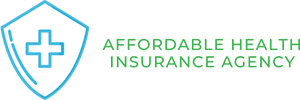Are you ready to become a master in the art of budget-friendly health insurance? Look no further! In this article, we will guide you through the ins and outs of navigating the world of health insurance while keeping your wallet intact. With our expert tips and strategies, you’ll learn how to choose the right insurance plan, explore affordable options, save money on premiums, and maximize your benefits. Get ready to take control of your healthcare without breaking the bank!
Understanding the Basics of Health Insurance
You should start by learning about the key components of health insurance. Understanding health insurance terminology is essential when navigating the complex world of healthcare coverage. Familiarize yourself with terms like premium, deductible, and copayment. The premium is the amount you pay each month for your insurance plan. The deductible is the amount you must pay out of pocket before your insurance kicks in. Copayments are fixed fees you pay for specific services, such as a doctor’s visit or a prescription. Understanding copayments is crucial because they can vary depending on the type of service and your insurance plan. By understanding these key components, you can make informed decisions regarding your health insurance coverage and ensure that you are getting the most out of your policy.
Tips for Choosing the Right Insurance Plan
When it comes to choosing the right insurance plan, there are a few key points to consider. First, you need to weigh the coverage versus the cost. It’s important to find a plan that offers the right level of coverage for your needs, while still fitting within your budget. Additionally, you should look at the network provider options to ensure that your preferred doctors and hospitals are included. Lastly, don’t forget to consider the out-of-pocket expenses, such as deductibles and co-pays, as these can significantly impact your overall costs.
Coverage Vs. Cost
Finding an affordable insurance plan with adequate coverage can be a challenge. When comparing coverage options and cost-effective plans, it’s important to consider your specific needs and budget. Here are some tips to help you choose the right insurance plan:
-
Evaluate your healthcare needs:
-
Take into account your medical history, current health conditions, and any ongoing treatments or medications.
-
Consider the frequency of doctor visits, specialist consultations, and potential hospitalizations.
-
Assess the coverage options:
-
Look for plans that provide comprehensive coverage for essential services, such as doctor visits, hospital stays, prescription drugs, and preventive care.
-
Compare the network of healthcare providers to ensure you have access to the doctors and specialists you prefer.
Network Provider Options
Evaluate the network provider options to ensure you have access to the preferred doctors and specialists within your insurance plan. When choosing a health insurance plan, it is crucial to consider the network of doctors and specialists that are included. Look for insurance plans that offer a wide range of network provider options, as this will give you more flexibility and choices when it comes to your healthcare. Additionally, consider cost-saving strategies when evaluating network provider options. Some insurance plans may offer lower premiums but have a limited network of providers, while others may have higher premiums but offer a larger network. It’s important to strike a balance between cost and access to ensure you receive the best healthcare possible while staying within your budget.
Out-of-pocket Expenses
To minimize out-of-pocket expenses, be sure to compare different insurance plans and select the one that best aligns with your budget and healthcare needs. Here are some tips for managing deductibles and minimizing co-pays:
-
Managing Deductibles: Look for insurance plans with lower deductibles if you anticipate needing frequent medical services or treatments. However, keep in mind that plans with lower deductibles often have higher monthly premiums. It’s important to strike a balance between the upfront costs and the potential savings in the long run.
-
Minimizing Co-pays: Co-pays can quickly add up, especially if you have regular doctor visits or take multiple medications. Consider insurance plans that offer lower co-pays for the services and medications you use the most. Additionally, check if the plan includes a preferred network of healthcare providers where co-pays may be lower.
Exploring Affordable Health Insurance Options
Now, let’s talk about some options that can help you find affordable health insurance. One option is to look for low-cost coverage plans that offer basic medical services at a lower premium. Another option is to consider opening a health savings account, which allows you to set aside money for medical expenses on a pre-tax basis. These options can help you find a budget-friendly health insurance plan that meets your needs.
Low-Cost Coverage Plans
If you’re looking for affordable health insurance options, consider exploring low-cost coverage plans. These plans provide low-cost alternatives to traditional health insurance while still offering affordable health coverage. Here are two sub-lists to help you understand the benefits and options of low-cost coverage plans:
-
Benefits of low-cost coverage plans:
-
Lower monthly premiums compared to traditional health insurance plans
-
Coverage for essential health services such as doctor visits, prescription medications, and preventive care
-
Options for low-cost coverage plans:
-
Health Savings Account (HSA) plans that allow you to save money tax-free for medical expenses
-
Catastrophic health plans that provide coverage for major medical expenses while keeping premiums low
Exploring these low-cost coverage plans can help you find an affordable health insurance option that fits your budget and healthcare needs.
Health Savings Accounts
When considering affordable health insurance options, you should explore Health Savings Accounts (HSAs) to save money tax-free for medical expenses. Health Savings Accounts offer several benefits that can help you manage your healthcare costs effectively. One of the main advantages of HSAs is the ability to contribute pre-tax dollars to the account, reducing your taxable income. Additionally, the funds in your HSA can be invested and grow tax-free, allowing you to save even more money over time. Another benefit is the flexibility to use the funds for a wide range of qualified medical expenses, including doctor visits, prescription medications, and even some alternative treatments. To further illustrate the advantages of HSAs, refer to the table below:
| Health Savings Account Benefits | Tax Advantages of Health Savings Accounts |
|---|---|
| Ability to save pre-tax dollars | Contributions are tax-deductible |
| Tax-free growth on investments | Withdrawals for qualified medical expenses are tax-free |
| Flexibility to use funds for various medical expenses | No taxes on withdrawals for non-medical expenses after age 65 |
Strategies for Saving Money on Premiums
To save money on your health insurance premiums, consider exploring different coverage options. There are several strategies you can implement to find budget-friendly options that still provide the coverage you need. Here are some tips to help you save money on your premiums:
-
Compare plans: Take the time to research and compare different health insurance plans. Look for plans with lower premiums and deductibles that still offer the coverage you require.
-
Consider high-deductible plans: High-deductible plans often have lower premiums. While you’ll have to pay more out-of-pocket before your insurance kicks in, these plans can be a cost-effective option if you’re generally healthy and don’t require frequent medical care.
Maximizing Your Health Insurance Benefits
To get the most out of your health insurance benefits, be sure to understand the coverage provided and take advantage of all available services and resources. One way to maximize your benefits is by focusing on preventive care. Many health insurance plans now cover preventive services, such as vaccinations, screenings, and annual check-ups, at no additional cost to you. By taking advantage of these services, you can catch potential health issues early on and prevent more serious and costly conditions down the line. Additionally, when it comes to medical bills, don’t be afraid to negotiate. If you receive a bill that seems excessive or unfair, reach out to the healthcare provider and ask for an itemized breakdown of charges. From there, you can negotiate payment plans or even request a reduction in the bill. Remember, understanding your coverage and being proactive can help you make the most of your health insurance benefits.
Navigating the Healthcare System on a Budget
If you’re looking to navigate the healthcare system on a budget, it’s important to be resourceful and proactive in finding affordable options for your medical needs. Here are some tips to help you find budget-friendly healthcare options and negotiate your medical bills:
- Research different healthcare providers and compare their prices to find the most affordable option for your needs.
- Look for community health centers or clinics that offer discounted or low-cost services.
- These centers often provide primary care, preventive services, and some specialized care at reduced rates.
- They may also offer sliding scale fees based on your income level.
- Negotiate your medical bills with healthcare providers and hospitals.
- Ask for itemized bills and review them carefully to check for any errors or unnecessary charges.
- Contact the billing department to discuss payment options or negotiate a lower amount.
Long-Term Cost-Saving Measures for Health Insurance
One way you can save costs in the long term for health insurance is by choosing a high deductible plan. High deductible plans typically have lower monthly premiums, making them a cost-effective strategy for long-term savings. By opting for a higher deductible, you take on more out-of-pocket expenses before your insurance coverage kicks in. While this may seem daunting at first, it can be a smart financial move if you rarely need medical care. Additionally, some high deductible plans offer health savings accounts (HSAs), which allow you to save pre-tax dollars for medical expenses. By contributing to an HSA, you can further offset the cost of your deductible and save money in the long run. Exploring high deductible plans and utilizing HSAs are effective ways to save on health insurance expenses over time.











